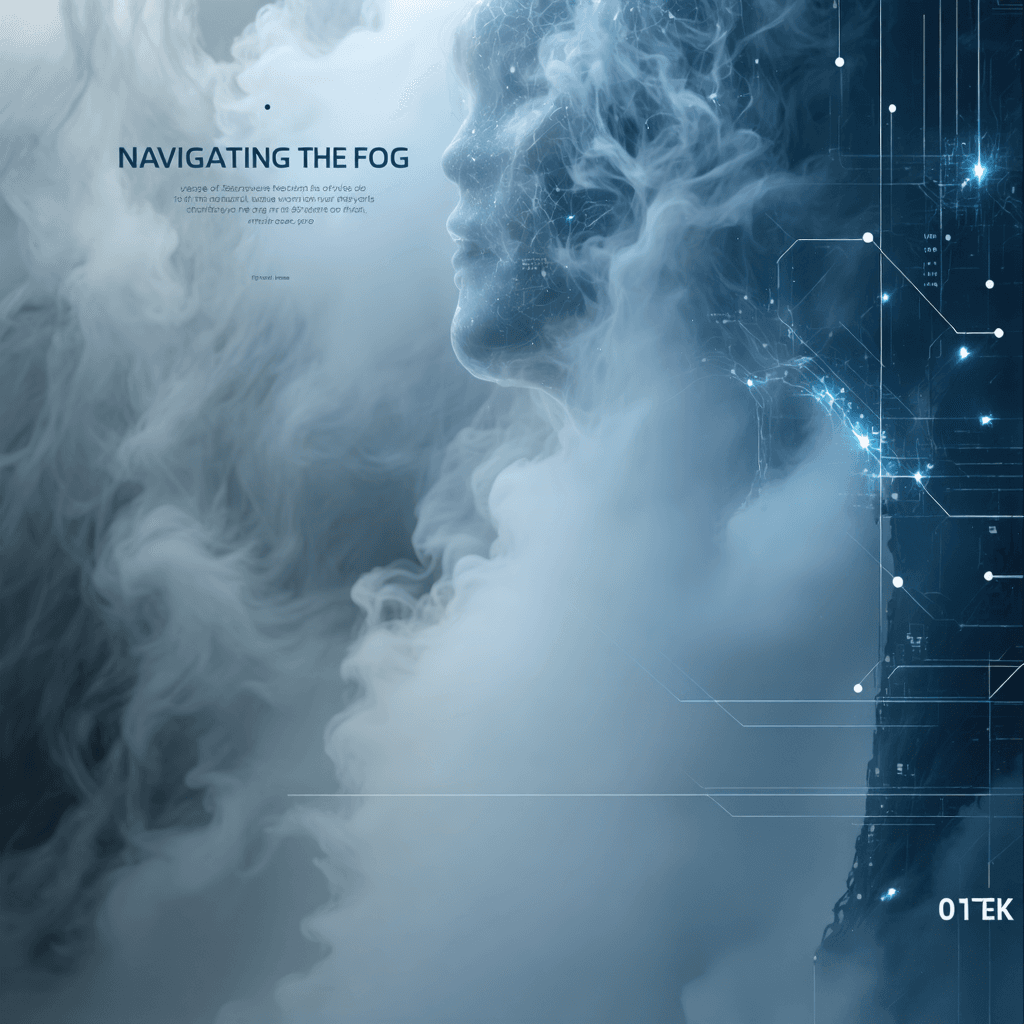Navigating the Fog: How Uncertainty Shapes the Future of AI Development
In an era where artificial intelligence continues to evolve at breakneck speed, the path forward is shrouded in a complex fog of uncertainty. This technological revolution, while promising unprecedented advances, brings with it a host of challenges that developers, policymakers, and society at large must navigate carefully.
The Current Landscape of AI Development

As we move through 2025, the AI landscape has become increasingly complex. Recent developments have shown that while AI capabilities continue to expand exponentially, so do the challenges and uncertainties surrounding their implementation. According to recent McKinsey research, while nearly all companies are investing in AI, only 1% believe they have reached maturity in their AI initiatives, highlighting the vast gap between ambition and execution.
Regulatory Challenges and Framework Evolution
The regulatory environment for AI is experiencing significant transformation. In early 2025, global regulatory frameworks have begun to take shape, with different regions adopting varying approaches to AI governance. The UK, for instance, has implemented a risk-based approach to AI regulation, focusing on flexible rules that balance innovation with safety and ethical considerations.
Key Areas of Uncertainty
Ethical Considerations
- Bias and fairness in AI systems
- Transparency and explainability
- Privacy concerns and data protection
- Accountability frameworks
Technical Challenges
- Reliability and robustness of AI systems
- Integration with existing infrastructure
- Scalability concerns
- Security vulnerabilities
Societal Impact
- Employment displacement and workforce transformation
- Digital divide and accessibility
- Social cohesion and algorithmic influence
- Public trust and acceptance
The Role of Ethics in Shaping AI Development
Ethics has emerged as a cornerstone in AI development. The integration of ethical considerations into AI systems is no longer optional but fundamental to their design and implementation. Companies and organizations are increasingly adopting ethical AI frameworks that prioritize transparency, fairness, and accountability.
Healthcare: A Case Study in AI Uncertainty
The healthcare sector provides a compelling example of both the promise and challenges of AI implementation. Recent technological advancements have opened new frontiers in medical diagnosis, treatment planning, and patient care. However, these developments come with significant ethical and regulatory challenges, including:
- Patient data privacy and security
- Reliability of AI-driven diagnoses
- Integration with existing medical protocols
- Legal liability and responsibility
Navigating the Path Forward
Strategic Approaches for Organizations
Adaptive Governance
- Implement flexible frameworks that can evolve with technology
- Establish clear ethical guidelines
- Regular assessment and updating of AI systems
Risk Management
- Develop comprehensive risk assessment protocols
- Create contingency plans for AI-related incidents
- Regular security and performance audits
Stakeholder Engagement
- Foster open dialogue with users and affected parties
- Maintain transparency in AI deployment
- Regular communication about AI capabilities and limitations
Future Perspectives
The future of AI development, while uncertain, holds immense potential. As we progress through 2025, several key trends are emerging:
- Increased focus on explainable AI
- Growing emphasis on sustainable and responsible AI development
- Enhanced collaboration between public and private sectors
- Evolution of regulatory frameworks to match technological advancement
Practical Steps for Organizations
Investment in Education and Training
- Develop comprehensive AI literacy programs
- Regular updates on AI capabilities and limitations
- Cross-functional team training
Technical Infrastructure
- Build scalable and flexible AI systems
- Implement robust testing and validation protocols
- Maintain strong security measures
Policy Development
- Create clear AI governance policies
- Establish ethical guidelines
- Regular policy reviews and updates
Conclusion
The fog of uncertainty surrounding AI development, while challenging, should not be seen as an insurmountable obstacle. Instead, it presents an opportunity to shape the future of technology in a way that benefits humanity while minimizing potential risks. Success in this endeavor requires a balanced approach that combines innovation with responsibility, technical excellence with ethical consideration, and ambition with prudence.
Ready to Navigate the Future of AI? Explore our comprehensive range of AI development courses and resources at 01TEK. Whether you're a beginner or an experienced developer, we have the tools and knowledge to help you succeed in the evolving landscape of artificial intelligence. Visit 01TEK's Learning Hub to start your journey today.
Sources: [1] McKinsey Digital Insights [2] White & Case AI Watch [3] Brookings Institution [4] Healthcare AI Ethics [5] Dentons AI Insights
What is not started will never get finished
Johann Wolfgang von Goethe




